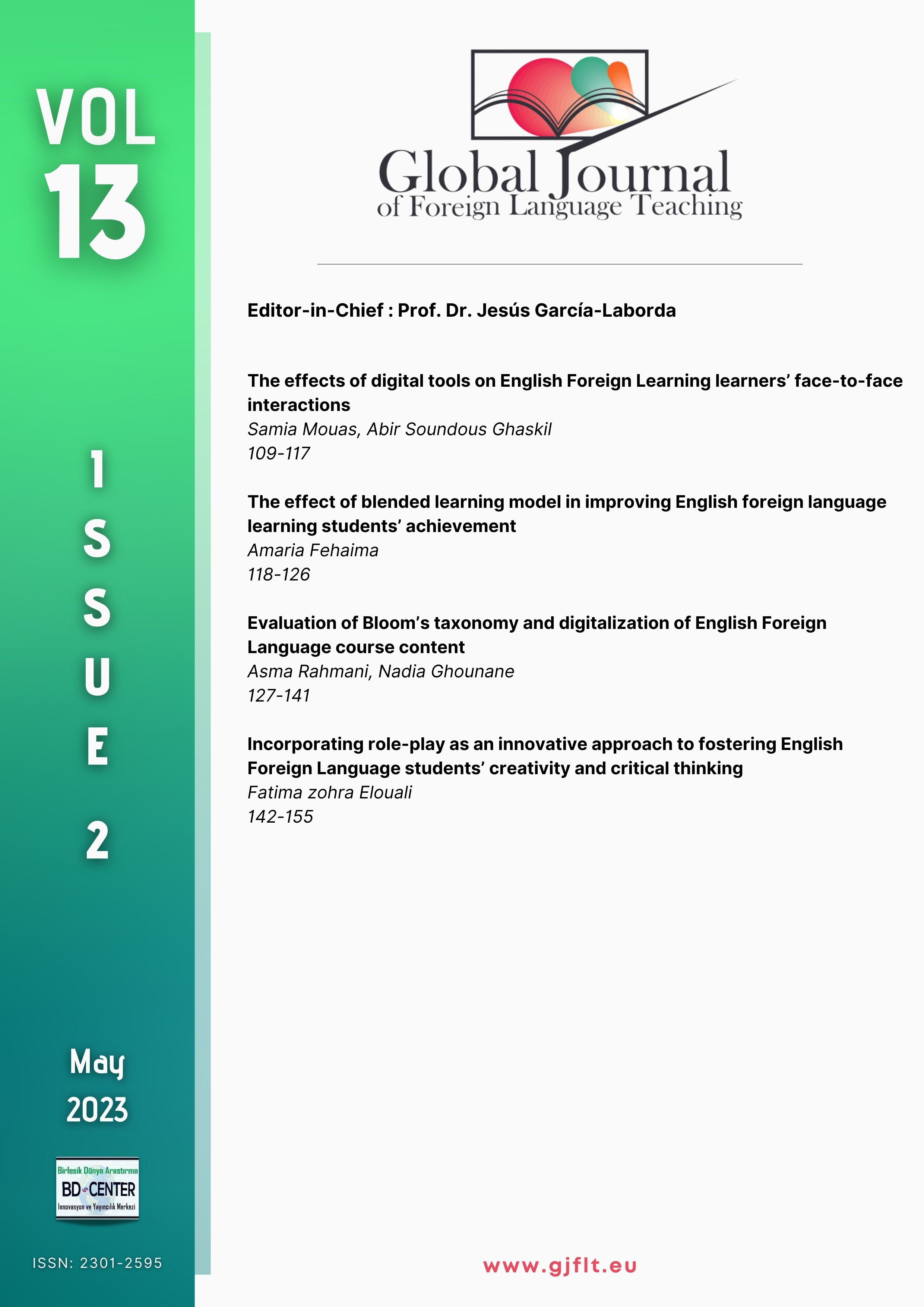Incorporating role-play as an innovative approach to fostering English Foreign Language students’ creativity and critical thinking
Main Article Content
Abstract
Communicative activities introduce learners to real-life situations that require speaking in the target language. As a didactic strategy, role-play is assumed to be an effective method of learning and developing social skills, creativity, critical thinking, problem-solving, and communication using simulated scenarios. In the present investigation, role-playing is used in an educational setting specifically in English foreign language classes. This research paper sheds light on the importance of including innovative approaches when teaching; moreover, it investigates the impact of role-plays in developing speaking qualifications, social knowledge, and personal skills. The sample comprised 35 EFL students at the University of Ain Temouchent, Algeria. To guarantee research validity and reliability, a mixed methods approach was applied to collect and analyze data. The findings demonstrate that students could increase their speaking qualifications and overcome speaking difficulties and using role-plays can develop students’ creativity and critical thinking by engaging them in real-life situations.
Keywords: Communicative skills; creativity; critical thinking; role-plays; speaking qualifications.
Downloads
Article Details

This work is licensed under a Creative Commons Attribution-NonCommercial-NoDerivatives 4.0 International License.
Authors who publish with this journal agree to the following terms:- Authors retain copyright and grant the journal right of first publication with the work simultaneously licensed under a Creative Commons Attribution License that allows others to share the work with an acknowledgement of the work's authorship and initial publication in this journal.
- Authors are able to enter into separate, additional contractual arrangements for the non-exclusive distribution of the journal's published version of the work (e.g., post it to an institutional repository or publish it in a book), with an acknowledgement of its initial publication in this journal.
- Authors are permitted and encouraged to post their work online (e.g., in institutional repositories or on their website) prior to and during the submission process, as it can lead to productive exchanges, as well as earlier and greater citation of published work (SeeThe Effect of Open Access).
